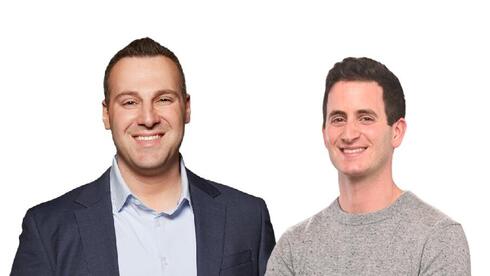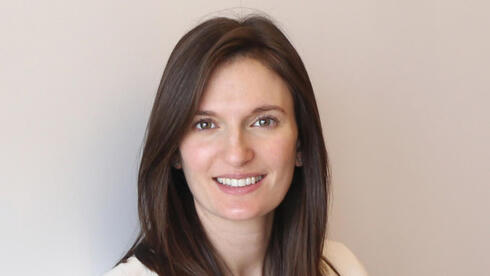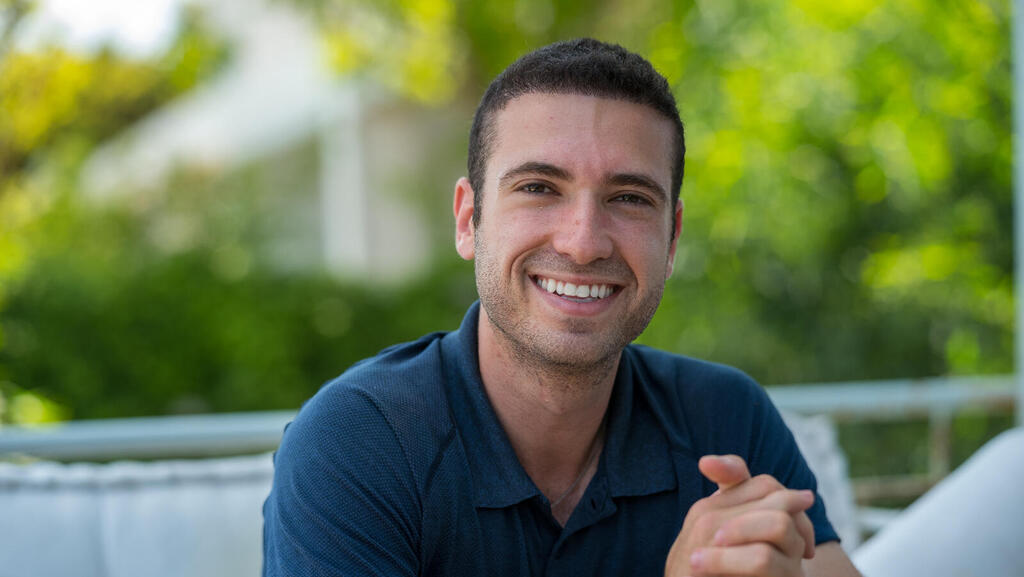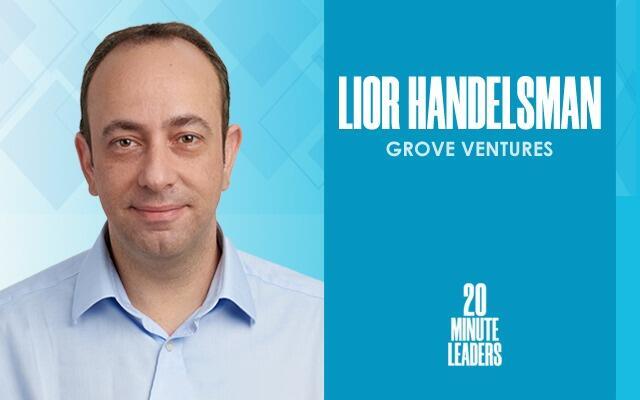
20-Minute Leaders
Lior Handelsman: "I get to see the future, like, five times a week"
The VC investor joined Michael Matias to discuss what he looks for when trying to assess the success of tomorrow's leading companies.
Lior Handelsman, former senior manager and a founding member of the leading smart energy company SolarEdge, turned after 15 years to a new chapter in his life as a VC investor at Grove Ventures. In an episode of the "20 Minute Leaders" podcast, the technologist at heart shares with Michael Matias his entrepreneurial journey, why investing in early-stage startups excites him, and what he looks for when trying to assess the success of tomorrow's leading companies.
To watch the full episode of the "20 Minute Leaders" podcast:
Click Here For More 20MinuteLeaders
"I love the term 'technologist at heart' because I've been doing technology stuff since at a very, very, very early stage. I got my first computer at the age of seven, it had one kilobyte of memory, and then I upgraded it to 64 kilobytes of memory. So I've been playing with computers and electronics from a very young age- and what I've learned over the years is that the ability to take technology and turn it into something viable, functional, that people want and need, and solve a real need in people's lives is what excites me. It sounds a little bit like a cliché, but seeing lots of people use your technology and get excited about it, and use your product, actually is what excites me."
You decided to dedicate a lot of your time to renewable energy, where did that come from? I mean, today, everybody's talking about it obviously, but back then I don't think it was as mainstream as today.
"We got into renewable energy by chance. It's not like we said, 'Okay, we are going to do a renewable energy company.'- We were five friends, and we said 'We'll start something.' And we looked for ideas pretty much everywhere and in numerous markets. I don't want even to say 'not just energy', because we didn't even look at energy. And throughout that ideation process, we got to the understanding that there's a revolution in power electronics and that there is a digitization of the power electronics fields. And we developed this technology around batteries and power management in laptops and mobile devices. Nobody would invest in that. Every investor we met was, like, 'Very nice. But no, thank you'. One investor told us that the technology looks very, very cool but the market is a competitive red ocean type of market and that it will be very hard to create a huge success in this market.
2 View gallery
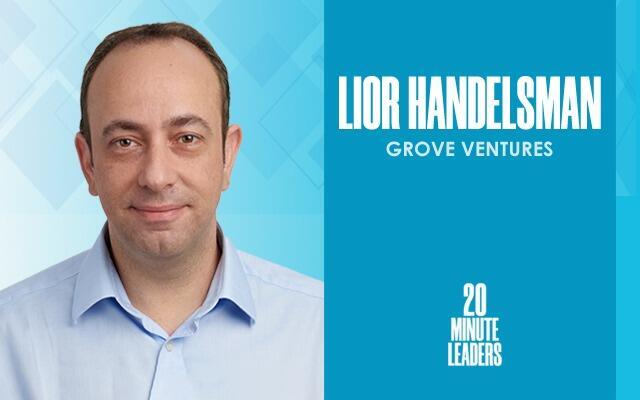

Lior Handelsman, former senior manager and a founding member of SolarEdge
(Photo: Grove Ventures)
And then we just looked at markets where we can move our technology into. And Guy (Guy Sella R.I.P.), which was one of the founders and the CEO, build a list, he said, 'Solar energy is going to be a big thing. Let's explore that'- it was by no means even number five on the list, it was somewhere around number 15, 18. But we looked at that first. And we found that there's a huge market that really needs this disruption, really growing, good for the planet and for mankind. And we moved all our efforts there, and that's how SolarEdge was created.
Fast forward 17 years into the future, to now, solar energy is the cheapest cost of energy. There is no way of making energy that is cheaper, and the technological advancement is simply huge. So we moved from just bringing connection, web connection into solar systems, today's solar systems are grid-connected in the sense that they communicate with each other. They have storage and backup. And there are these cool things called 'virtual power plants'.
When thousands of tens of thousands of solar systems operate as one large virtual power plant, the field has advanced so much, it will be a major source of energy for mankind. It is already a major source; it will be even larger. So the conviction that we had in 2006 is it's clear to see it now."
Interesting. So you go through the whole journey that's every entrepreneur's dream with SolarEdge, and where do you find yourself in your own journey?
"My journey with SolarEdge was overall close to 15 years. And it was amazing because every two years the company evolved. We started as a team doing only R&D, and then at some point I was tasked with finding design partners and convincing them to work with us. So that was very interesting for me as an engineer to start doing some business stuff. And from design partners to move to actually structure products and business and, God forbid, doing sales. And from that, we moved to the point where we needed to be a global company in the sense that we are selling in multiple countries, and then sales scale up, and then a public company, and then a growing public company- every two years, something new, very interesting for me. All that with continuously developing technology and products. And after 15 years, the company is now very, very large and sells billions of dollars and makes a profit of hundreds of millions of dollars, and I transitioned out. I'm still involved in SolarEdge in a consultancy role to the management, but what I do now and my passion now is early-stage venture capital investing, basically trying to recreate that experience by meeting new teams. It's amazing because I get to see the future, like, five times a week. In some of these teams, I get the privilege of investing. And then I try to give them from my experience as a board member, as a friend, as an investor, to help them move in a similar direction or in a similar path that we've seen at SolarEdge."
Handelsman is a board member of 8 companies since he joined the early-stage venture capital investment firm Grove Ventures, which manages over half a billion dollars, mostly investing in Israeli startups.
Among the companies in which he invested are Luminescent (zero-emission heat engine); Protai (an AI-based platform that maps the course of disease on the protein level in order to improve the way new drugs are discovered); and NoTraffic, an intelligent traffic management system.
What things are you most excited by today when you meet teams? Is it different technologies, different types of people...?
"So people are everything, right? And we say, 'Go to people first'. From my journey and from others' journeys, what I know is that finding the right team, a team that is on one hand coachable, on the other hand, strong and independent- that's the key to successful startups, that's the key to success as a company. So, the first thing I look at when I see any team is how good is the team, how good is the chemistry between the team members, and what is the combination of capabilities that they have as a team.
In terms of things that I like to invest in, if you look at the Grove's portfolio, you would see that around a third of our portfolio is what we call 'vertical SAAS': it's always placed where there is a vertical part of the market, where there is room for disruption. Either because there are new data sets or because there is a new way of utilizing that data. So, if I invested in an AI company that is leveraging proteomic data for drug discovery, so there are new data sets and there are new AI models, and now you can take the new AI models and the new data sets and disrupt pharma, that's one example of our vertical AI strategy and things that excite me.
Another third of our portfolio is infrastructure. So obviously, in infrastructure, I look at climate and energy because these are fields that I have a strong affinity to and a strong understanding of, but also the entire infrastructure stack of data centers in the cloud. You know, people are so excited about Generative AI. I'm excited about Generative AI. I'm still not sure what's the play there for startups. But for sure, the companies that are going to make the most money, at least initially from Generative AI, are the data center companies, the cloud infrastructure companies. So, when we look at infrastructure companies, that excites us.
And the last third of our portfolio is Edge: compute at the edge, sensing at the edge communication at the edge- there are still a lot of things to disturb because too much of our data is captured at the edge and then sent for processing in the cloud, and it's very cost-effective in energy, it's very cost-effective in computing. And if we could do more of that at the edge, there are a lot of interesting opportunities there."
You are mentioning a variety of things. obviously, all of them are surrounding deep technology but in various domains- how do you navigate around these different verticals?
"So there are two layers, right? If you look at a specific company in a specific technological lane, it's unrealistic to believe that we would have a deep technology understanding, so we use experts. But what I think is more important is, A, the ability to understand the technology to a certain depth, and then to layer that with the core and deep understanding we have of the markets. Because technology is great, but the product is more important for the startup's success. The product market fit is more important, the direction that the market is taking- you would have to have mind-blowing technology. And I must say that startups really have mind-blowing technology, Nobel prize level. So usually, if you are going against a market direction, if you are going against what the customers need, your best technology won't get you into a great company. Our ability to know the markets, to live within the markets, to understand where these markets are going, to be in touch with the customers, and understand what they need, is what helps us select the companies in specific fields."
If we are looking a couple of years into the future, you are a technologist at heart, entrepreneur, investor, and obviously forward thinker, having given the first part of this conversation, what are you most excited about?
"I'll start with where we started: Energy and Climate. Clearly there's a crisis, right? The crisis, it's not just the global warming crisis which I have no doubt that we are living through it, there's also an energy crisis coming from the fact that we consume more and more energy. There's an energy shift in the way that we consume energy. I'll just give you one example but there are many more: electric vehicles. The world is clearly moving towards electric vehicles because of many reasons, not just climate. And people don't understand that, but electric vehicles are part of the grid. They are moving power stations that you can charge at home and discharge at work and the other way around. They are part of the grid. It's a disruption of the financial model. Electric vehicles are, they take up fewer spare parts so it's a huge financial disruption for auto companies. Auto companies are now thinking of how they can be part of the energy grid. So, energy and climate? Wow. These two I can talk about for hours. The changing of the market, the changing of the financial models, the technology that is needed, and the amount of data points that are needed to make decisions around our grid are mind-boggling.
I'm very bullish on energy. Specific energy types of companies. And I think that because of the global warming crisis, there will be market disruption in climate and carbon. There are a few other things that excite us as a fund. For example, the disruption in healthcare that started before Covid. And Covid accelerated bio, genomics, and proteomics. It's a very interesting world."
Michael Matias, Forbes 30 Under 30, is a Venture Fellow at Innovation Endeavors as well as investment Venture Partner at Secret Chord and J-Ventures. He studies Artificial Intelligence and Human-Computer Interaction at Stanford University, and was an engineer at Hippo Insurance. Matias previously served as an officer in the 8200 unit. 20MinuteLeaders is a tech entrepreneurship interview series featuring one-on-one interviews with fascinating founders, innovators and thought leaders sharing their journeys and experiences.
Contributing editors: Michael Matias, Betty Elbert




